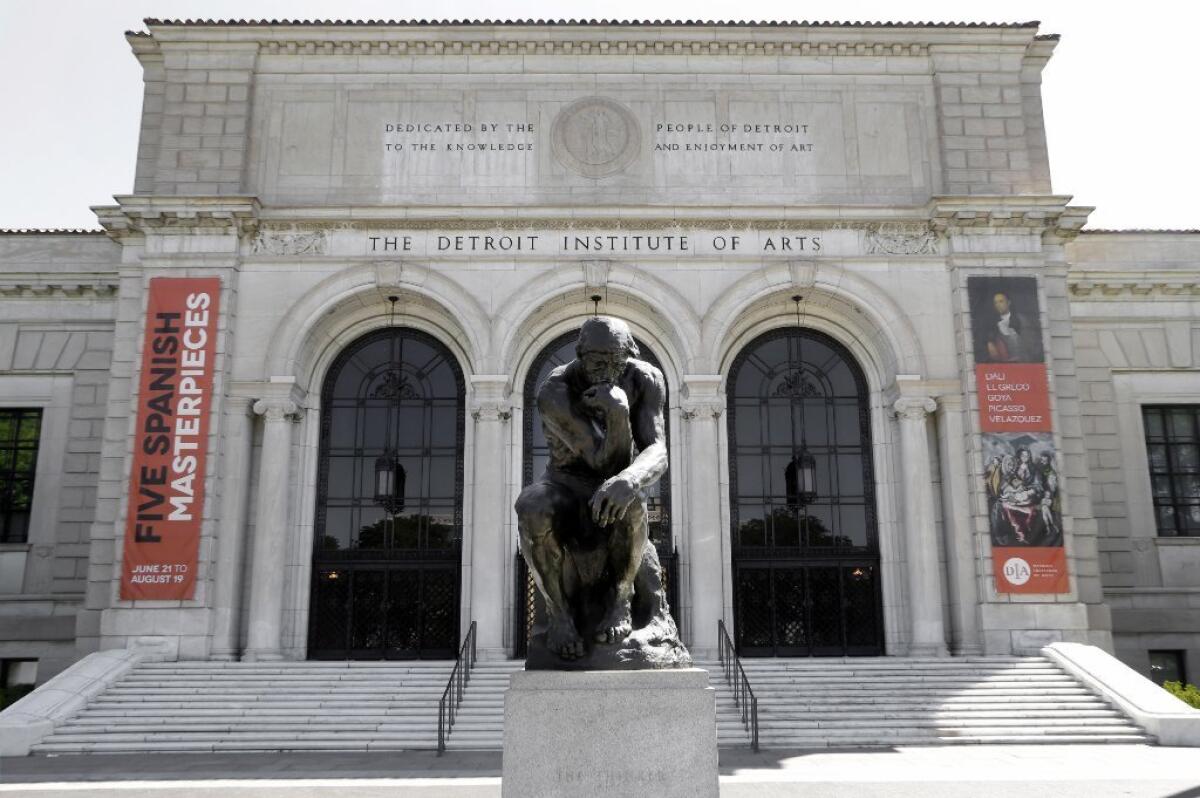Detroit’s creditors want entire art museum collection to be fair game

Creditors in Detroit’s municipal bankruptcy have engineered a new appraisal aimed at putting the Detroit Institute of Arts’ entire collection in play as a possible chip to maximize the amount the city will be obligated to ante up for debt repayment.
The Detroit News reports that, at some creditors’ behest, the city’s bankruptcy managers have begun trying to place a value on the museum’s entire 66,000-piece collection. That’s quite an escalation from a previous appraisal of only about 1,700 works that the DIA had bought with city funds.
The idea behind the more limited appraisal was that there would be fewer legal barriers to selling off art that was bought with public money.
The city likely would have to jump through considerably more complicated hoops to sell works donated by private collectors, or bought with donors’ money. Sales could be stymied if the gifts were made under the condition that only the DIA could own or sell the art it had thus acquired.
Christie’s auction house did the earlier appraisal, estimating the value of art bought with public funds at $454 million to $867 million. The Detroit News’ report said that creditors led by Financial Guaranty Insurance Co., which could lose as much as $1.1 billion in the bankruptcy, asked for the entire collection to be in play as the bankruptcy case goes forward toward a trial scheduled for July, in which the bankruptcy judge will decide whether to approve the city’s plan for repaying creditors.
One key piece of the plan is a “grand bargain” intended to spare the DIA’s collection by cobbling together $816 million from charitable foundations, Michigan’s state government, trade unions and the museum itself, which has promised to raise $100 million. The money would go to one group of creditors -- retired city workers whose pensions and medical benefits stand to take a hit in the bankruptcy. If approved, the bargain would make the DIA’s collection off-limits to creditors.
The creditors who are driving the valuation of the entire art collection are dissatisfied with that deal, which amounts to an $816 million ransom of the DIA. They believe more money would go into the pot for debt repayment if the entire art collection could be sold or if the city could use the art as collateral for loans.
The Detroit Free Press reports that the “grand bargain” is contingent on the Michigan legislature approving the state’s proposed share of $195 million, and on a majority vote by city pensioners to accept the deal.
More to Read
The biggest entertainment stories
Get our big stories about Hollywood, film, television, music, arts, culture and more right in your inbox as soon as they publish.
You may occasionally receive promotional content from the Los Angeles Times.










